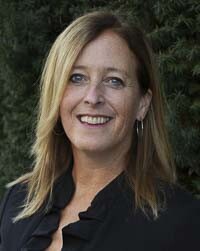
Elizabeth New (Hovde) of the Washington Policy Center discusses the recommendation of further expansion of a Medicaid-like program for low-income adults who are undocumented immigrants
Elizabeth New (Hovde)
Washington Policy Center
At their Aug. 15 meeting, members of Washington state’s ongoing Universal Health Care Commission talked about recommending further expansion of, and money for, a Medicaid-like program for low-income adults who are undocumented immigrants.

The program, called Apple Health Expansion, is shouldered by Washington state taxpayers alone, unlike Medicaid. Medicaid is funded by a federal-state partnership and is not available to people who entered the U.S. unauthorized or who were lawfully admitted but whose status expired or was revoked.
Becky Carrell, a director for Medicaid programs with the state’s Health Care Authority (HCA), said $72 million was allocated for the program, which she called the “latest investment by our Legislature to provide coverage to individuals who are not qualified for federally subsidized coverage because of their immigration status.” The program joined several others that Washington state makes available to undocumented immigrants, including Apple Health for Kids, Apple Health for Pregnant Individuals and Alien Emergency Medical. All state residents, regardless of immigration status, can also purchase health coverage on Washington Healthplanfinder.
This program for undocumented adults will cover, with some limitations, primary and specialty care, emergency visits, dental services, pediatric care, pregnancy and more. It requires no out-of-pocket costs or copays.
The program’s enrollment limit was met before it even launched for 19- to 64-year-olds and within days for the 65-plus population. As HCA’s website says, “Due to a limited budget, HCA needed to manage the number of people who can enroll into the program to ensure clients receive the highest value care possible.” Enrollment is capped at 13,000 — for now.
While capacity has been reached, another 5,000 applicants are in a holding pattern of sorts, waiting to be called up if anyone disenrolls from the expansion program. Thousands more illegal immigrants could be eligible.
That says to some members on the commission that the program is a huge success and more slots and taxpayer dollars are needed to enroll more individuals. A motion was made to support legislative action for further expansion and more taxpayer funding, but not enough members were present to hold a vote. The vote was tabled for the next meeting in October.
One member on the commission, Rep. Joe Schmick, R-Colfax, rightly urged caution for such a recommendation. He said, “I’m in opposition to doing this. I have a hard time expanding the program when we are so severely underpaying providers currently.”
That’s a problem that also exists with Apple Health (the state’s Medicaid program). The government fails to fully pay the way of people it agrees to provide with health care coverage. The lack of adequate provider payment often means employers and people who pay for services and private insurance pick up the tab. Low government reimbursement rates can also limit health care access for people on Medicaid.
Later in this UHCC meeting, which celebrated the launch of more taxpayer-financed health care in Washington state, there was discussion about whether the taxpayer-financed health care system that the UHCC is set up to work toward would require any cost-sharing for individuals. That’s when commission member Rep. Marcus Riccelli, D- Spokane, brought up a piece of legislation that was introduced earlier this year to standardize plans on the state’s health care exchange. He said such a move could really benefit incremental steps the UHCC wants to make. He said he heard opposition to the legislation that it was a bill trying to set up universal health care, to which he said, “Absolutely!” He looks forward to broadening the momentum for standardized plans in the fall.
Many UHCC members, like Riccelli, take the charge to pave a path to a universal, taxpayer-financed health care system both seriously and excitedly. They believe Apple Health Expansion for undocumented immigrants is an important piece of that path that they helped make possible.
Elizabeth New (Hovde) is a policy analyst and the director of the Centers for Health Care and Worker Rights at the Washington Policy Center. She is a Clark County resident.
Also read:
- Opinion: TriMet Better Red cost allocation revealedJohn Ley examines TriMet’s $204 million Better Red project, showing most of the spending wasn’t on vehicles or tracks—raising questions about cost transparency and regional funding.
- Letter: ‘This administration’s trade stance is bold, but it’s producing results’Camas resident Anna Miller argues that recent federal revenue gains show President Trump’s tariff policies are reshaping the nation’s fiscal outlook.
- Opinion: In-n-Out Burger is so much more than fast food for so many of usPaul Valencia shares why In-n-Out Burger means more than just fast food for countless fans as Ridgefield nears its grand opening and Vancouver’s location begins construction.
- Opinion: Washington’s June 2025 budget revisions – revenue up spending up moreMark Harmsworth of the Washington Policy Center critiques the state’s latest budget revisions, warning that new taxes—not organic growth—are driving revenue. He calls for fiscal restraint and long-term reform.
- Opinion: Pedestrian control signalsDoug Dahl explains Washington state law regarding crosswalks and pedestrian signals, offering safety insights and common misunderstandings about traffic control at intersection










